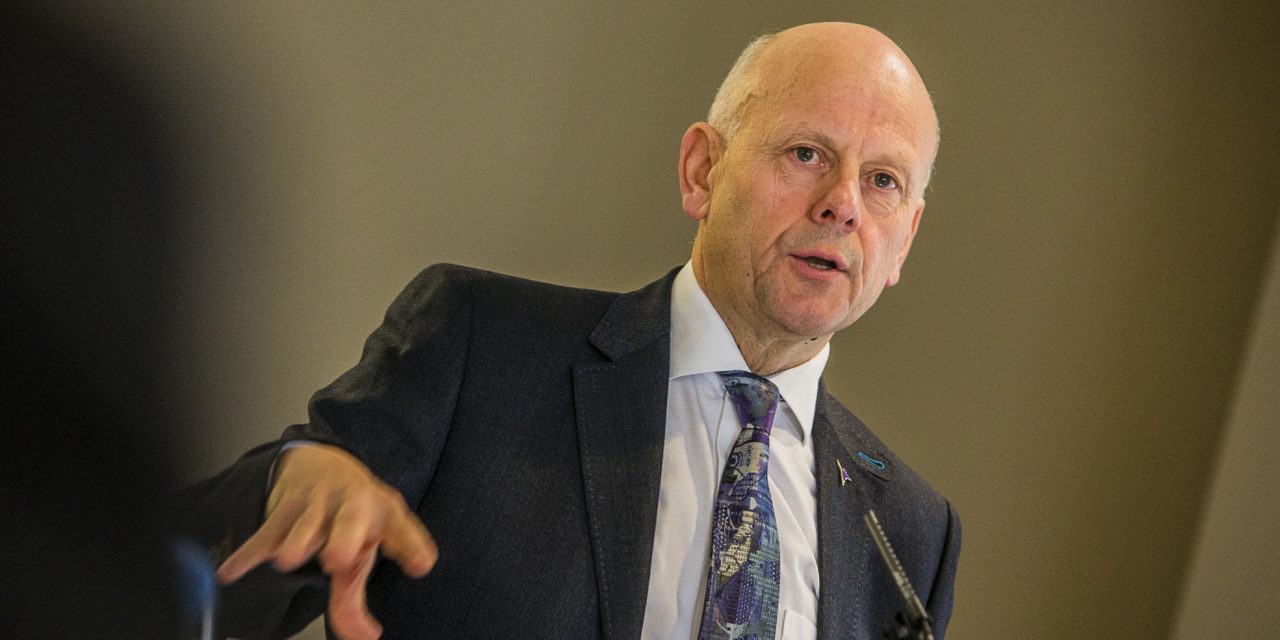A social care leader is calling for urgent reform to enable care homes and
home care companies in the Rhondda to compete with the NHS when it comes to
recruiting staff.
Mario Kreft MBE, the chair of Care Forum Wales, revealed that the NHS was
paying staff up to £1.50 an hour more for doing the equivalent jobs.
He is calling on the Welsh Government to introduce a system similar to the
one in Scotland where providers who pay more to their staff are paid more
in fees.
Mr Kreft was speaking in response to a new report, The cost of caring for
an ageing population, by the Finance Committee of the National Assembly for
Wales.
He welcome the report as an important contribution to the debate about how
social care is going to be funded in the Rhondda and elsewhere.
It once again raised the prospect of introducing a new levy to pay for
social care at a time when the number of people aged over 85 is forecast to
double in the next two decades.
According to Mr Kreft, fundamental changes to the “chronically flawed
system” were needed before any levy was introduced otherwise it would be
like throwing good money after bad.
Because of the way funding was calculated for publicly-funded individuals,
care providers could usually only afford to pay around £8 an hour to care
practitioners while the NHS in some parts of Wales were paying £9.50 an
hour, plus enhancements.
At the same time supermarkets were also paying more so care staff were
being attracted away by bigger pay packets.
Mr Kreft said: “We did give evidence to this committee and their report is
important and very timely, not least because of the Welsh Government’s
decision to recognise social care as one of the four foundation sectors in
the economy.
“We agree with many of the conclusions and recommendations, particularly
about valuing the wonderful people who work in social care and recognising
the real cost of providing services when they are being commissioned.
“Unfortunately, the workforce is not valued economically by our public
bodies in Wales. Both health boards and local authorities who commission
need to recognise the real costs borne by independent care providers.
“When it comes to recruiting their own staff they obviously pay
significantly more which is totally unfair.
“People doing a vital job in social care are not recognised in the same way
and rewarded financially in the same way as those in the NHS.
“Social care has always been the Cinderella service with a constant
downward pressure on fees, with ever escalating costs some of which are a
direct result of extra regulation at a time of austerity.
“We would like to see a system similar to the one in Scotland where they
have a simple mechanism to make sure that providers who pay more to their
staff get higher fees.”
“At the moment the way things stand you can’t compete with the NHS for
staff and unwittingly or otherwise people are being poached from social
care.
“Health and social care are inextricably linked, in fact they are
absolutely symbiotic, and that should be reflected in what we are able to
pay staff in the independent sector.
”We certainly agree with the report that working in social care must be on
par with working conditions offered to staff working in the NHS but that
cannot happen unless providers are enabled to pay staff the same rates by
the NHS and local authorities when they commission services.
“Welsh Government has a responsibility too. We welcome the report’s
recommendation that they monitor the funding provided to local authorities
to ensure that they are able to continue to fulfil their obligations.
Unfortunately this does not appear to have been evident in this week’s
Welsh Government budget announcement where funding to local authorities
appears insufficient to meet the needs of supporting the social care
sector.”
“We also welcome the recent publication of a toolkit by Welsh Government to
guide Health Boards and local authorities in setting fees for social care
and reminding them that fee setting should be a negotiation not imposed on
providers. As the Committee report says following the publication of this
toolkit work needs to be undertaken to understand the true costs of care.”
“One of the important aspects again of this very helpful report is that we
are going to have to find ways to raise more finance for our aging
population.
“Care Forum Wales has been suggesting for some considerable time extra
funding can only be raised through a combination of insurance and private
contribution.
“This may well be, as the report suggests, via a special levy but before
anything like that is introduced we need to reform the system so that the
extra revenue is being spent wisely. There is no point throwing money into
the pot without fundamental reform.
“Care Forum Wales is in full agreement with the recommendations in the
report and having a conversation with the people of Wales about what a levy
will cover and who will pay it. To carry on with the current system is
unsustainable.”



